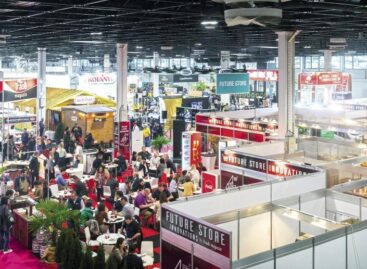Nestlé to stop selling vegan KitKat
The Swiss giant launched KitKat V four years ago.

Nestlé has decided to pull its vegan KitKat from multiple markets, citing falling demand.
The Swiss giant launched KitKat V in 2021 and embarked on a wider roll-out the following year.
It will continue selling the product in the UK and Ireland, although it will also be phased out in those countries.
“We know that KitKat Vegan has been popular for those looking for dairy or vegan alternatives. Unfortunately, global demand has been reducing to the point that production was making manufacturing more and more complex,” a Nestlé spokesperson said. “We have now made the difficult decision to discontinue the product. We know there will be some disappointment. However, it will still be available in the UK and Ireland until the summer.”
KitKat V was developed at Nestlé’s UK confectionery research and development centre in York in northern England, the original home of KitKat.
When Nestlé first announced its plans, Alexander von Maillot, then the head of the company’s confectionery business, said: “One of the most common requests we see on social media is for a vegan KitKat, so we’re delighted to be able to make that wish come true.”
Nestlé took the vegan KitKat to more than 15 markets in Europe, manufacturing the product at its site in the German city of Hamburg.
Two years ago, Nestlé said it was pulling the Garden Gourmet meat-free and Wunda alt-dairy brands from retail in the UK and Ireland to focus on its “core” portfolio.
Just Food
Related news
SIRHA Budapest 2026 – The biggest domestic celebration of the HoReCa sector
🎧 Hallgasd a cikket: Lejátszás Szünet Folytatás Leállítás Nyelv: Auto…
Read more >Related news
II. Green Gastronomy – Marketing Communication Workshop organized by the MMSZ HoReCa and Green Section
🎧 Hallgasd a cikket: Lejátszás Szünet Folytatás Leállítás Nyelv: Auto…
Read more >Retail sales of organic products in Hungary increased by 13.9% – our country is the second fastest growing market in the European Union
🎧 Hallgasd a cikket: Lejátszás Szünet Folytatás Leállítás Nyelv: Auto…
Read more >








